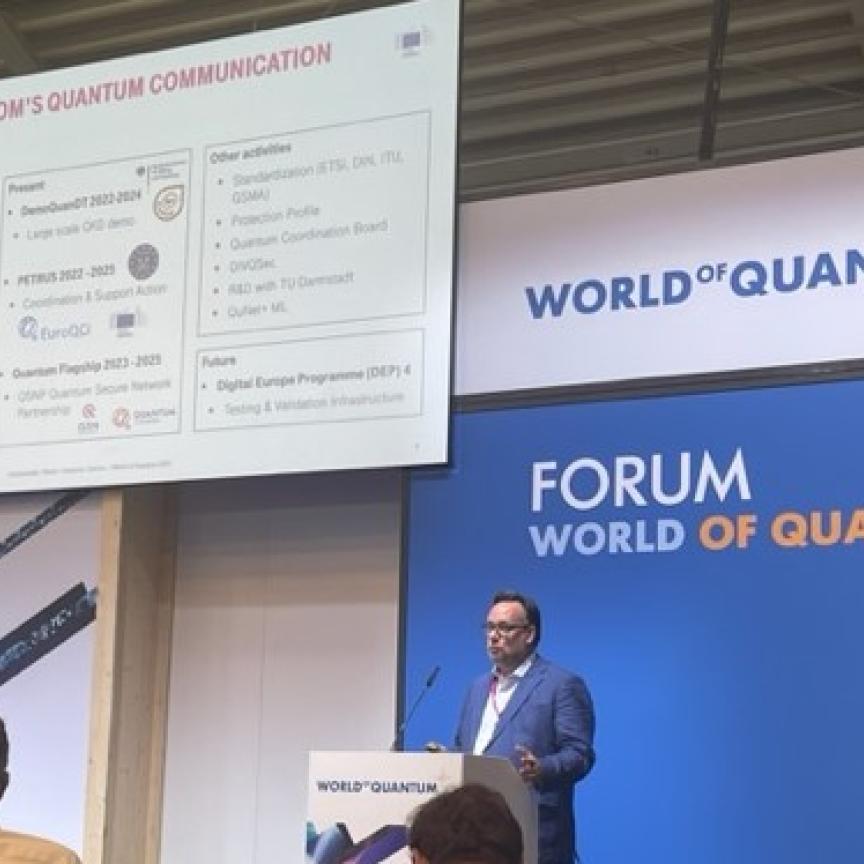Companies wishing to provide high-speed telecoms lines for businesses would be granted access to BT’s fibre networks in areas outside central London and Hull, under Ofcom proposals announced last week.
The plan is the result of Ofcom’s ‘Business Connectivity Market Review’, which looked at competition in the provision in leased lines - dedicated, high-speed connections used by businesses and mobile operators – to decide whether it needed a helping hand.
“To ensure that businesses have effective choice, and to encourage competition and innovation in this £2 billion market, Ofcom is proposing to place a new requirement on BT, as the largest supplier in the market to supply ‘dark fibre’ in areas where the market is uncompetitive,” the UK regulator said.
Ofcom previously reviewed business connectivity in 2012 and decided not to force BT to offer dark fibre to rivals. It’s latest ruling take a different view.
BT will still be required to provide wholesale leased line services, but the new proposal goes further, allowing operators to use BT’s fibre-optic cables with their own equipment, rather than rely on BT’s. This should increase the opportunity for competitors to create tailored, high-capacity data services at cost-effective prices for their customers.
Competitors both large and small have called for dark fibre access. In its response to the consultation, Vodafone said that “an approach based on regulating access to ‘dark’ fibre would provide a proportionate and practical way to enable the benefits of competition in a deeper point in the value chain.”
Mesch,CEO of CityFibre, commented: “As one of the UK’s largest independent suppliers of fibre infrastructure, CityFibre has long championed making dark fibre widely available in the UK, placing it at the core of our Gigabit City projects in York, Peterborough, Coventry, Aberdeen and Edinburgh over the last three years.”
BT seems to think the benefits are overstated, however. “Mandating dark fibre risks favouring a few companies that have the greatest capability to deploy it, to the disadvantage of all other firms,” the operator said in a prepared statement.
As part of the review, BT also faces new, minimum quality of service performance requirements on its infrastructure arm Openreach. Ofcom is concerned that Openreach often takes too long to install Ethernet leased lines, and too often changes the date on which it promises to deliver services.
Ofcom says that since 2011, the average time between a customer’s order and the line being ready has increased from 40 to 46 working days. Therefore, Ofcom will require Openreach to return this average to 40 working days by 2017, and maintain it thereafter.
Meanwhile, Ofcom is also concerned that Openreach only completed around half of leased line installations on the initial date it promised to its customer. As a result, the regulator is proposing a second rule to require Openreach to meet the original dates it promises customers in 80% of cases by 2016, and then reach 90% by 2018.
Jonathan Oxley, Ofcom competition group director, said: “Today’s proposals should help businesses across the UK who rely on high-speed data lines. We want to see more innovation, faster installations and more competition, by providing operators with the opportunity to deploy the technologies of their choice.”
Ofcom is also proposing to deregulate in some areas of the leased lines market where competition is now sufficient to make this unnecessary, and to remove requirements on BT applying to very low-bandwidth leased lines, which BT wants to phase out by 2020.
Ofcom’s proposals are subject to consultation that ends on 31 July 2015 with final decisions expected early next year and taking effect from April 2016.
It will take longer to bring the dark fibre offer to market. Ofcom will require BT to publish a draft ‘reference offer’ for industry, containing wholesale pricing and terms for access, in mid-2016. This would then be subject to negotiation between BT and other providers, with BT expected to publish a final reference offer before the end of 2016 and dark fibre access becoming available to telecoms providers from April 2017.
In the event that BT and industry could not agree terms for dark fibre access during 2016, Ofcom could intervene to finalise these terms.
The requirement on BT to make dark fibre available would apply in all parts of the UK except central London (including the City of London and Docklands) - where there is sufficient competition in the market - and Hull, where most leased lines are provided by Kcom rather than BT.

